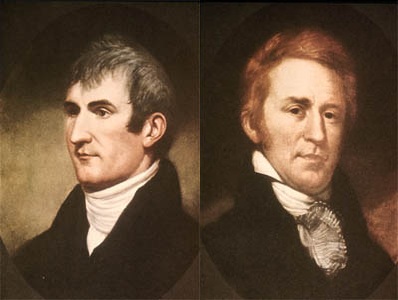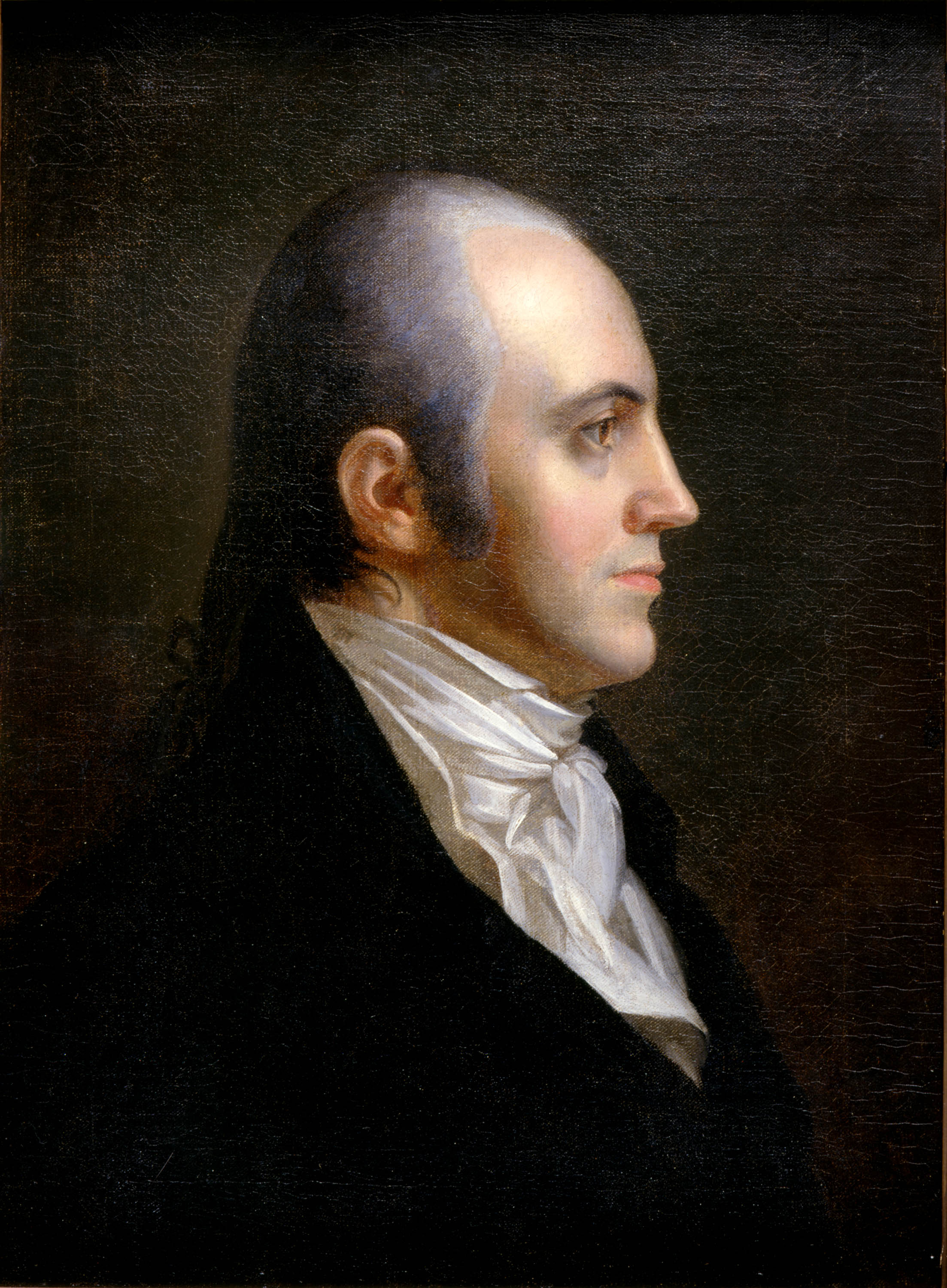|
Jacob Richards
Jacob Richards (1773 – July 20, 1816) was an American politician and lawyer who served in the United States House of Representatives from 1803 to 1809, representing the 1st congressional district of Pennsylvania as a member of the Democratic-Republican Party. Early life and education Richards was born near Chester, Pennsylvania in 1773. He graduated from the University of Pennsylvania in 1791 and studied law. Career Richards was admitted to the bar in 1795; he commenced practice in Philadelphia. Richards served in the United States House of Representatives from 1803 to 1809, representing the 1st congressional district of Pennsylvania as a member of the Democratic-Republican Party. Richards served in the 8th United States Congress, the 9th United States Congress, and the 10th United States Congress. His time in office began on March 4, 1803 and concluded on March 3, 1809. Following his tenure in Congress, Richards resumed practicing law until his death in 1816. He was also ... [...More Info...] [...Related Items...] OR: [Wikipedia] [Google] [Baidu] |
Pennsylvania
Pennsylvania (; (Pennsylvania Dutch: )), officially the Commonwealth of Pennsylvania, is a state spanning the Mid-Atlantic, Northeastern, Appalachian, and Great Lakes regions of the United States. It borders Delaware to its southeast, Maryland to its south, West Virginia to its southwest, Ohio to its west, Lake Erie and the Canadian province of Ontario to its northwest, New York to its north, and the Delaware River and New Jersey to its east. Pennsylvania is the List of U.S. states and territories by population, fifth-most populous state in the nation with over 13 million residents 2020 United States census, as of 2020. It is the List of U.S. states and territories by area, 33rd-largest state by area and ranks List of states and territories of the United States by population density, ninth among all states in population density. The southeastern Delaware Valley metropolitan area comprises and surrounds Philadelphia, the state's List of cities in Pennsylvania, largest ... [...More Info...] [...Related Items...] OR: [Wikipedia] [Google] [Baidu] |
Democratic-Republican Party Members Of The United States House Of Representatives From Pennsylvania
The Democratic-Republican Party, known at the time as the Republican Party and also referred to as the Jeffersonian Republican Party among other names, was an American political party founded by Thomas Jefferson and James Madison in the early 1790s that championed republicanism, agrarianism, political equality, and expansionism. The party became increasingly dominant after the 1800 elections as the opposing Federalist Party collapsed. The Democratic-Republicans splintered during the 1824 presidential election. The majority faction of the Democratic-Republicans eventually coalesced into the modern Democratic Party, while the minority faction ultimately formed the core of what became the Whig Party. The Democratic-Republican Party originated as a faction in Congress that opposed the centralizing policies of Alexander Hamilton, who served as Secretary of the Treasury under President George Washington. The Democratic-Republicans and the opposing Federalist Party each became ... [...More Info...] [...Related Items...] OR: [Wikipedia] [Google] [Baidu] |
19th-century American Lawyers
The 19th (nineteenth) century began on 1 January 1801 ( MDCCCI), and ended on 31 December 1900 ( MCM). The 19th century was the ninth century of the 2nd millennium. The 19th century was characterized by vast social upheaval. Slavery was abolished in much of Europe and the Americas. The First Industrial Revolution, though it began in the late 18th century, expanding beyond its British homeland for the first time during this century, particularly remaking the economies and societies of the Low Countries, the Rhineland, Northern Italy, and the Northeastern United States. A few decades later, the Second Industrial Revolution led to ever more massive urbanization and much higher levels of productivity, profit, and prosperity, a pattern that continued into the 20th century. The Islamic gunpowder empires fell into decline and European imperialism brought much of South Asia, Southeast Asia, and almost all of Africa under colonial rule. It was also marked by the collapse of the l ... [...More Info...] [...Related Items...] OR: [Wikipedia] [Google] [Baidu] |
1816 Deaths
This year was known as the '' Year Without a Summer'', because of low temperatures in the Northern Hemisphere, possibly the result of the Mount Tambora volcanic eruption in Indonesia in 1815, causing severe global cooling, catastrophic in some locations. Events January–March * December 25 1815–January 6 – Tsar Alexander I of Russia signs an order, expelling the Jesuits from St. Petersburg and Moscow. * January 9 – Sir Humphry Davy's Davy lamp is first tested underground as a coal mining safety lamp, at Hebburn Colliery in northeast England. * January 17 – Fire nearly destroys the city of St. John's, Newfoundland. * February 10 – Friedrich Karl Ludwig, Duke of Schleswig-Holstein-Sonderburg-Beck, dies and is succeeded by Friedrich Wilhelm, his son and founder of the House of Glücksburg. * February 20 – Gioachino Rossini's opera buffa '' The Barber of Seville'' premières at the Teatro Argentina in Rome. * March ... [...More Info...] [...Related Items...] OR: [Wikipedia] [Google] [Baidu] |
1773 Births
Events January–March * January 1 – The hymn that becomes known as '' Amazing Grace'', at this time titled "1 Chronicles 17:16–17", is first used to accompany a sermon led by curate John Newton in the town of Olney, Buckinghamshire, England. * January 12 – The first museum in the American colonies is established in Charleston, South Carolina; in 1915, it is formally incorporated as the Charleston Museum. * January 17 – Second voyage of James Cook: Captain Cook in HMS Resolution (1771) becomes the first European explorer to cross the Antarctic Circle. * January 18 – The first opera performance in the Swedish language, ''Thetis and Phelée'', performed by Carl Stenborg and Elisabeth Olin in Bollhuset in Stockholm, Sweden, marks the establishment of the Royal Swedish Opera. * February 8 – The Grand Council of Poland meets in Warsaw, summoned by a circular letter from King Stanisław August Poniatowski to respond to the Kingdom's thr ... [...More Info...] [...Related Items...] OR: [Wikipedia] [Google] [Baidu] |
The Political Graveyard
The Political Graveyard is a website and database that catalogues information on more than 277,000 American political figures and political families, along with other information. The name comes from the website's inclusion of burial locations of the deceased (when known). It is also a pun; where bodies are buried can refer to the politicians accused of crimes or touched by scandal. History The site was created in 1996 by Lawrence Kestenbaum, then an academic specialist at Michigan State University, and later on staff at the University of Michigan. Kestenbaum was formerly a county commissioner, and in 2004 was elected to be County Clerk/ Register of Deeds of Washtenaw County, Michigan. The site and its underlying database were developed from a personal interest triggered by the ''Biographical Directory of the U.S. Congress'', which was its original data source. Since then his personal research, and the information contributions of hundreds of volunteers have greatly expanded ... [...More Info...] [...Related Items...] OR: [Wikipedia] [Google] [Baidu] |
Delaware County, Pennsylvania
Delaware County, colloquially referred to as Delco, is a county in the Commonwealth of Pennsylvania. With a population of 576,830 as of the 2020 census, it is the fifth-most populous county in Pennsylvania and the third=smallest in area. Delaware County is part of the Delaware Valley and borders Philadelphia, the sixth most populous city in the nation as of 2020. The county was created on September 26, 1789, from part of Chester County and named for the Delaware River. The county is adjacent to the city-county of Philadelphia and is included in the Philadelphia–Camden– Wilmington, PA– NJ– DE– MD metropoilitan stastical area known as the Delaware Valley. Its county seat is Media. History Delaware County lies in the river and bay drainage area named "Delaware" in honor of Thomas West, 3rd Baron De La Warr, Governor of the nearby English colony of Virginia. The land was explored by Henry Hudson in 1609, and over the next several decades it was variously claimed ... [...More Info...] [...Related Items...] OR: [Wikipedia] [Google] [Baidu] |
10th United States Congress
The 10th United States Congress was a meeting of the legislative branch of the United States federal government, consisting of the Senate and the House of Representatives. It met in Washington, D.C. from March 4, 1807, to March 4, 1809, during the seventh and eighth years of Thomas Jefferson's presidency. The apportionment of seats in the House of Representatives was based on the 1800 census; both chambers had an overwhelming Democratic-Republican majority. Major events *May 22, 1807: Former Vice President of the United States Aaron Burr was indicted for treason. He was acquitted September 1, 1807 * June 1807: Chesapeake-Leopard Affair: The British warship captured and boarded the . * August 17, 1807: The '' Clermont'', Robert Fulton's first American steamboat, left New York City for Albany, New York, on the Hudson River, inaugurating the first commercial steamboat service in the world. *January 1, 1808: The importation of slaves into the United States was banned ... [...More Info...] [...Related Items...] OR: [Wikipedia] [Google] [Baidu] |
9th United States Congress
The 9th United States Congress was a meeting of the legislative branch of the United States federal government, consisting of the United States Senate and the United States House of Representatives. It met in Washington, D.C. from March 4, 1805, to March 4, 1807, during the fifth and sixth years of Thomas Jefferson's presidency. The apportionment of seats in the House of Representatives was based on the Second Census of the United States in 1800. Both chambers had a Democratic-Republican majority. Major events * March 4, 1805: President Thomas Jefferson begins his second term. * June 1, 1805: First Barbary War ends. * November 7, 1805: Lewis and Clark Expedition arrived at the Pacific Ocean. * September 23, 1806: Lewis and Clark Expedition returned to St. Louis, Missouri, thereby ending the exploration of the Louisiana Territory and the Pacific Northwest. * February 19, 1807: Former Vice President Aaron Burr was tried for conspiracy and acquitted. Major legislation * Ma ... [...More Info...] [...Related Items...] OR: [Wikipedia] [Google] [Baidu] |
8th United States Congress
The 8th United States Congress was a meeting of the legislative branch of the United States federal government, consisting of the United States Senate and the United States House of Representatives. It met in Washington, D.C. from March 4, 1803, to March 4, 1805, during the last two years of the first presidency of U.S. President Thomas Jefferson. The apportionment of seats in the House of Representatives was based on the Second Census of the United States in 1800. Both chambers had a Democratic-Republican majority. Major events * April 30, 1803: Louisiana Purchase was made by the United States from France * February 16, 1804: In the First Barbary War, Stephen Decatur led a raid to burn the pirate-held frigate ''Philadelphia'' * May 14, 1804: Lewis and Clark Expedition departed from Camp Dubois to begin their historic journey by traveling up the Missouri River * July 11, 1804: Aaron Burr killed Alexander Hamilton * November 30, 1804: Impeachment trial of Supreme Court Justi ... [...More Info...] [...Related Items...] OR: [Wikipedia] [Google] [Baidu] |


.jpg)


